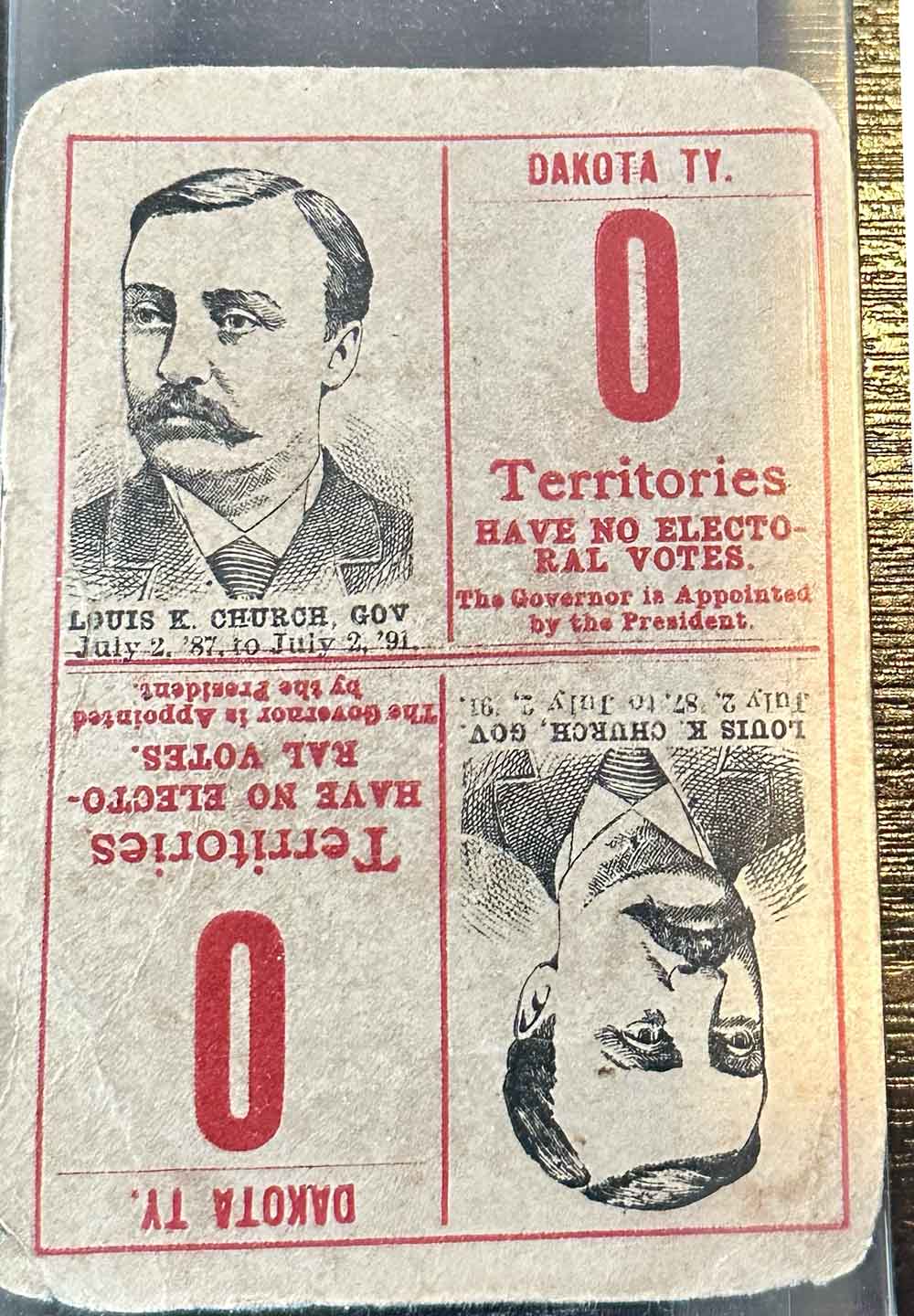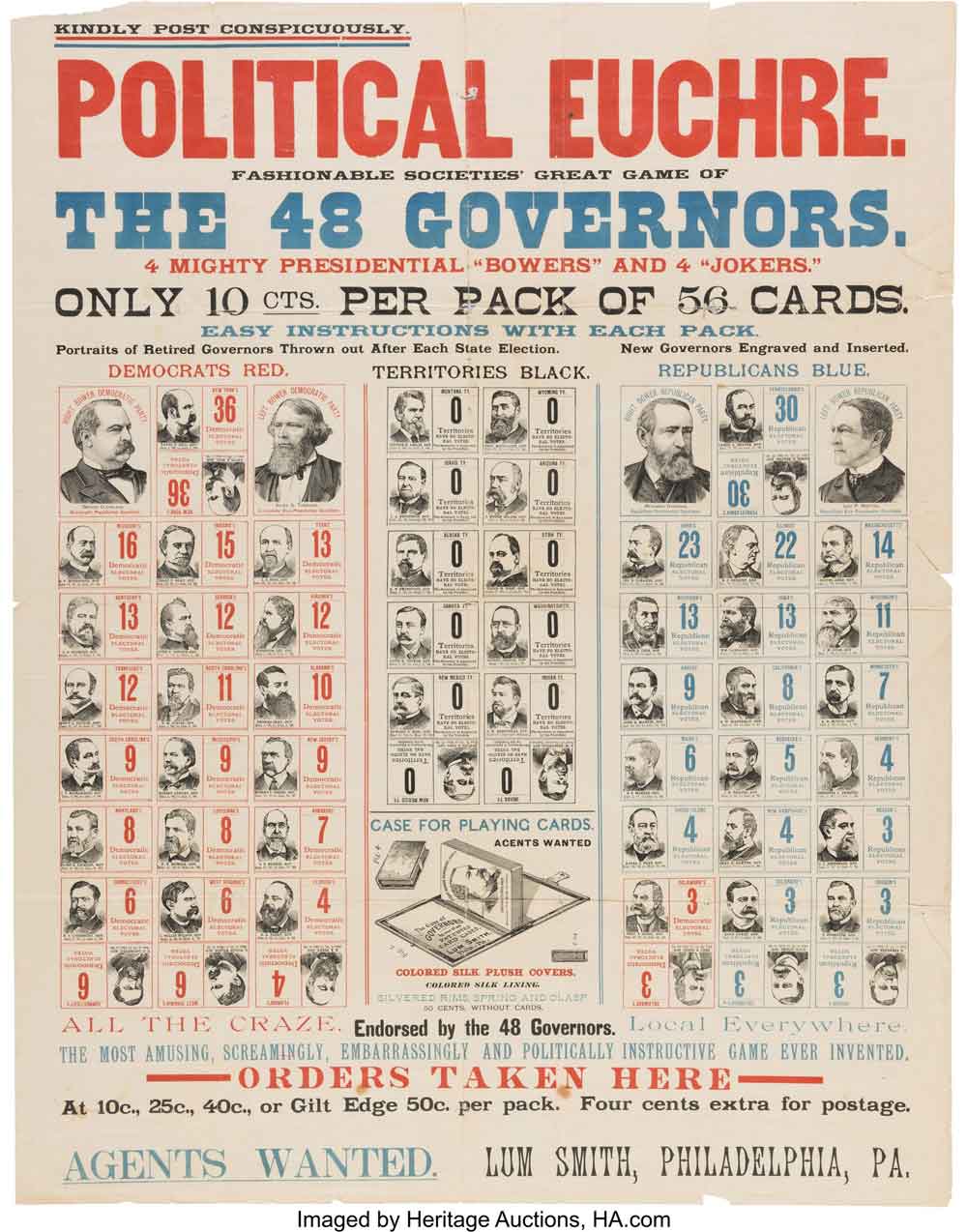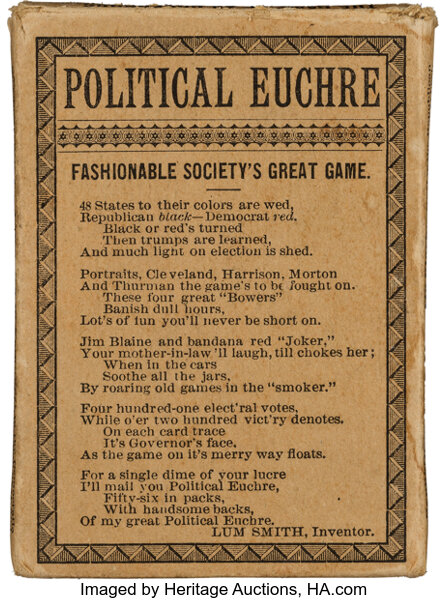I picked up this item off of eBay right before I had to take off to Boston last week, so I hadn’t had a chance to share it yet. It’s a little beat up, but it’s an uncommon item from an uncommon 1888 game, and most things 136 years old have a few dings in them.

What can we tell you about this Territorial Governor, who was #9 out of the 10 territorial governors? From Wikipedia:
President Cleveland appointed Louis Church as Governor of Dakota Territory. A number of Democrats in Dakota Territory were disappointed in the appointment because they had expected the appointment of Dakota resident Frank M. Ziebach. Church became governor on February 21, 1887. He scrutinized every bill and restrained excessive spending with his veto power. He allowed the reform school to be established at Plankinton. Church opposed the division of Dakota Territory into two separate states. Governor Church and former Governors, Nehemiah G. Ordway and John L. Pennington, wanted Dakota to enter the Union as a single state.
In spite of his integrity, Church became very unpopular as governor because of his opposition to separate statehood. When Benjamin Harrison defeated Cleveland as president, Church became a lame duck who was generally ignored by the territorial legislature.
This card is out of a “political euchre” deck of playing cards.. a game which happened to have a poster featured in a recent auction from Heritage Auctions. They’ve also sold a full set of the cards in the past as well.


Interestingly, this is back when Democrats were identified by the color red, and Republicans were blue.
While I didn’t have access to a full set, I thought this unique record of South Dakota’s 9th Territorial Governor was a bargain at $16.87. (Especially since I was busy, and missed the final bidding on a Pierre for Capital poster I wanted badly.)

Excellent score. Love Euchre…didn’t know this political Euchre ever existed.